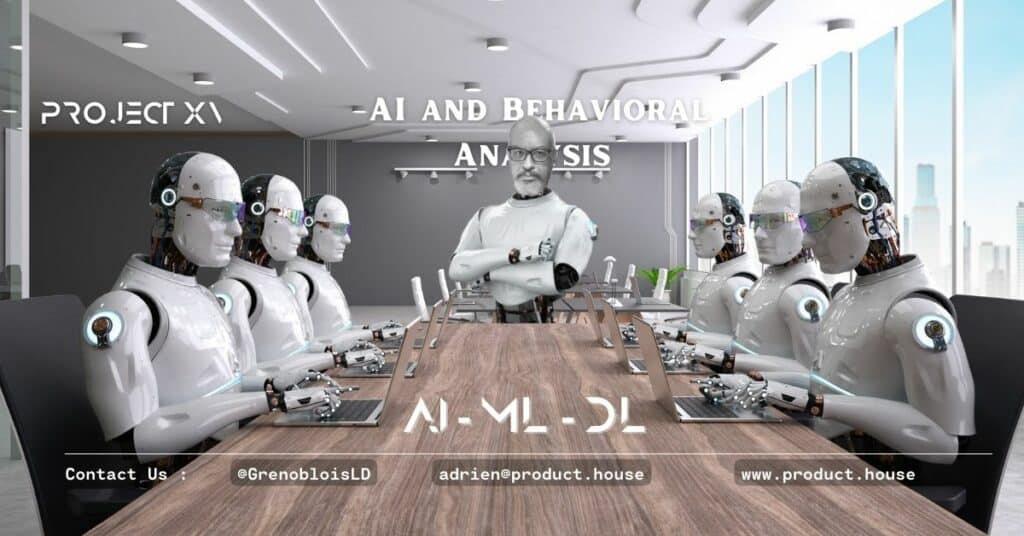AI and Marketing: How Machine Learning Is Changing the Industry

Artificial intelligence (AI) is revolutionizing many industries, and marketing is no exception. Machine learning algorithms can analyze massive amounts of data and make predictions about customer behavior with a level of accuracy that was previously impossible. This allows marketers to make better decisions, optimize their campaigns, and achieve better results. In this article, we’ll explore the ways in which machine learning is changing the marketing industry.
Introduction
Marketing has come a long way in recent years. With the rise of digital channels and the increasing amount of data available, it has become possible to target customers in ways that were previously impossible. However, this has also created new challenges, such as the need to process and analyze massive amounts of data, and the need to make sense of it all. This is where machine learning comes in.
What is machine learning?
Machine learning is a subset of artificial intelligence that involves training algorithms to learn from data. In other words, instead of programming a computer to perform a specific task, we give it a large dataset and allow it to learn how to perform the task on its own. This is done by adjusting the parameters of the algorithm until it produces the desired output.
Machine learning algorithms can be used for a variety of tasks, such as image recognition, natural language processing, and predictive modeling. In marketing, machine learning is used for tasks such as customer segmentation, predictive analytics, and personalization.
Customer segmentation
One of the most important tasks in marketing is to identify and segment customers based on their behavior and preferences. This allows marketers to target specific groups of customers with tailored messages and offers. Machine learning algorithms can be used to analyze customer data and identify patterns and segments automatically. This allows marketers to create more accurate and detailed customer segments, which in turn leads to better targeting and higher engagement.
Predictive analytics
Another important use case for machine learning in marketing is predictive analytics. Predictive analytics involves using data, statistical algorithms, and machine learning techniques to identify the likelihood of future outcomes based on historical data. In marketing, predictive analytics can be used to forecast customer behavior, such as the likelihood of a customer making a purchase, the likelihood of a customer churning, or the likelihood of a customer responding to a specific offer.
Personalization
Personalization is the process of tailoring marketing messages and offers to individual customers based on their behavior and preferences. Personalization is important because it leads to higher engagement and conversion rates. Machine learning algorithms can be used to create personalized experiences for customers by analyzing their behavior and making predictions about their preferences. For example, a machine learning algorithm can analyze a customer’s browsing history and recommend products that are likely to be of interest to them.
Challenges and opportunities
While machine learning has the potential to revolutionize the marketing industry, there are also some challenges that need to be addressed. One of the biggest challenges is the need for high-quality data. Machine learning algorithms require large amounts of data to be trained, and the quality of the data is critical to the accuracy of the predictions. This means that marketers need to invest in data quality and data management to ensure that their machine learning models are accurate.
Another challenge is the need for expertise in data science and machine learning. Marketers need to have a good understanding of how machine learning works, and they need to be able to work with data scientists to develop and deploy machine learning models. This requires a certain level of technical knowledge, as well as an understanding of the business and marketing context.
However, despite these challenges, there are many opportunities for marketers to use machine learning to improve their results. By leveraging the power of machine learning, marketers can:
- Target the right customers: By using machine learning algorithms to analyze customer data, marketers can identify the most valuable segments and target them with personalized messages and offers.
- Optimize campaigns: Machine learning algorithms can analyze campaign data in real-time and make adjustments to optimize performance.
- Improve customer experience: By using machine learning to create personalized experiences for customers, marketers can improve customer satisfaction and loyalty.
- Increase ROI: By making better decisions based on data and predictions, marketers can achieve better results and increase their return on investment.
FAQs
Q: What is the difference between AI and machine learning?
A: AI is a broader field that encompasses machine learning, as well as other techniques such as natural language processing and robotics. Machine learning is a subset of AI that involves training algorithms to learn from data.
Q: Can machine learning be used for all types of marketing?
A: Machine learning can be used for many types of marketing, but it is most effective when there is a large amount of data to work with. It is also important to have a clear understanding of the business problem that is being addressed, and to have the right expertise to develop and deploy the machine learning models.
Q: What are some of the ethical considerations around using machine learning in marketing?
A: There are many ethical considerations around using machine learning in marketing, such as data privacy, transparency, and fairness. Marketers need to be aware of these considerations and ensure that they are using machine learning in an ethical and responsible way.
Q: How can marketers get started with machine learning?
A: Marketers can get started with machine learning by identifying a specific business problem that can be addressed with machine learning, and by working with data scientists to develop and deploy the models. It is also important to invest in data quality and data management, and to ensure that the machine learning models are being used in an ethical and responsible way.
Q: What are some of the benefits of using machine learning in marketing?
A: Some of the benefits of using machine learning in marketing include better targeting, higher engagement, improved customer experience, and increased ROI. By leveraging the power of machine learning, marketers can make better decisions and achieve better results.
Q: What are some resources for learning more about machine learning in marketing?
A: There are many resources available for learning more about machine learning in marketing, including books, online courses, and university courses. Some examples of resources include the book “Machine Learning for Marketing” by Andreas Graefe, the online course “Marketing Analytics: Machine Learning and AI in Marketing” offered by Coursera, and the university course “Machine Learning for Marketing” offered by the University of Pennsylvania.
Q: What are some key teachers in the field of machine learning in marketing?
A: There are many experts in the field of machine learning in marketing, including Andreas Graefe, Rajkumar Venkatesan, and Michael Kim. These experts have published many papers and articles on the topic, and have contributed to the development of the field.
Q: Can you provide some examples of machine learning in marketing?
A: Sure, some examples of machine learning in marketing include customer segmentation, predictive analytics, and personalization. For example, machine learning algorithms can be used to analyze customer data and identify patterns and segments automatically. This allows marketers to create more accurate and detailed customer segments, which in turn leads to better targeting and higher engagement.
Conclusion
Machine learning is changing the marketing industry in many ways. By analyzing massive amounts of data and making predictions about customer behavior, machine learning algorithms are enabling marketers to make better decisions, optimize their campaigns, and achieve better results. However, to fully realize the potential of machine learning in marketing, marketers need to invest in data quality and data management, and to ensure that they are using machine learning in an ethical and responsible way. With the right expertise and approach, machine learning has the potential to revolutionize the marketing industry and help marketers achieve their goals.
Reminders:
- Machine learning requires large amounts of high-quality data.
- Machine learning algorithms should be used in an ethical and responsible way.
- Marketers should have a good understanding of machine learning and work with data scientists to develop and deploy models.
Books:
- “Machine Learning for Marketing” by Andreas Graefe
- “Marketing Data Science: Modeling Techniques in Predictive Analytics with R and Python” by Thomas W. Miller
- “Applied Predictive Modeling” by Max Kuhn and Kjell Johnson
Online Courses:
- “Marketing Analytics: Machine Learning and AI in Marketing” offered by Coursera
- “Introduction to Machine Learning for Marketing” offered by Udacity
- “Marketing Analytics with R” offered by edX
University Courses:
- “Machine Learning for Marketing” offered by the University of Pennsylvania
- “Data Mining and Business Analytics for Marketing” offered by Carnegie Mellon University
- “Marketing Analytics” offered by MIT






